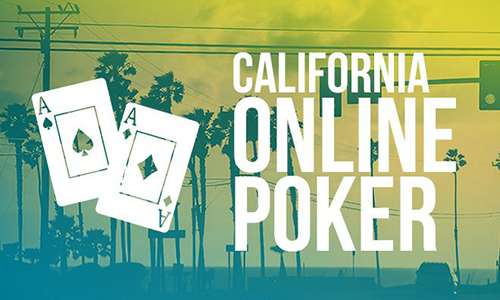New Online Poker Bill Introduced in California
What is that saying about the definition of insanity? Insanity is doing the same thing over and over and expecting to achieve a different result, right? Well, if that is the case, what happened late last week in the California State Assembly is certifiably insane. Assemblyman Reginald Jones-Sawyer introduced Assembly Bill 1677 (AB 1677), a bill which would legalize and regulate online poker in the state. This has been attempted for about the last decade and every year, it ends in disappointment.

California State Assemblyman Reginald Byron Jones-Sawyer, Sr.
Perhaps the biggest obstacle to ever getting online poker legalized in California is a group of hardline Native American tribes who want as big of a piece of the internet poker pie for themselves and damn anyone else who wants in. Notoriously unwilling to give much of any ground in the legislative negotiations, the tribes are the Pechanga Band of Luiseno Mission Indians, the Agua Caliente Band of Cahuilla Indians, the Barona Band of Mission Indians, the Lytton Rancheria Band of Pomo Indians, the Table Mountain Rancheria of California, the Yoche Dehe Wintun Nation, and the Viejas Band of Kumeyaay Indians.
Their attitude in a nutshell: “We only want California tribes to be allowed to operator online poker sites and fuck everyone else.”
Of course, they will never get their way completely, as the industry will be open to more than just the tribes, but those hardline tribes have done everything than can to scuttle legislation if it doesn’t give them what they want.
AB 1677 does grant them a fairly significant concession, as it locks the state’s racetracks out of the licensing process; only cardrooms and tribes would be eligible for a license. This compromise was presented in 2016 by Assemblyman Adam Gray and while it sucks, it does seem to be a way that the legislative process could inch forward.
The racetracks wouldn’t be totally left out in the cold, though. The bill would guarantee them, as a group, 95 percent of the first $60 million in proceeds brought in by the state, so $57 million. Racetracks would also be allowed to be online poker service providers, partnering with the licensed operators. The caveat here is that any such partnership would require that the racetrack involved would have to get at least half of the endeavor’s revenue.
At first blush, it would seem that the service provider part is an empty promise, as one would think that means a racetrack would have to both develop its own poker software and convince a cardroom or tribe to use it, but who knows?
The other thing the hardline tribes have been adamant about for years is barring PokerStars from participating. Well, they say they believe any operator who offered online gambling in the United States after the UIGEA passed in 2006 should be left out, but really, their target is PokerStars. And their target is PokerStars because PokerStars poses the biggest threat as a potential competitor.
In past iterations of online poker legislation, such “bad actor” provisions have been included, but not in AB 1677. Instead, the state’s gaming regulators will be the ones to decide whether or not any applicant is granted a license. And while that sounds reasonable enough, even the decision on the “suitability” of an applicant has been controversial.
Last year, the hardline tribes, or “Pechanga coalition” as it is also called, wrote a demand letter to Assemblyman Gray outlining how they felt “suitability” language should be included in his legislation.
“We write to provide you with amendments on the suitability language that, if accepted in their entirety, would not only remove our opposition, but would take us closer to a support if amended position on the measure,” they said.
Oh, ok.
Included in their demands were a 10-year sitout period for PokerStars (though PokerStars was not specifically mentioned, we all know who this is referencing) and a $60 million fine just to be able to apply for a license.
As far as those licenses go, AB 1677 would set the licensing fee for each operator at $12.5 million, with licenses being good for seven years. The tax rates on gross gaming revenue would be progressive, as follows:
• Annual gross gaming revenue equal to or less than $150 million, the tax rate is 8.847 percent (I REALLY want to know how that number was calculated)
• Annual gross gaming revenue greater than $150 million and less than or equal to $250 million, the rate is 10 percent
• Annual gross gaming revenue greater than $250 million and less than or equal to $350 million, the rate is 12.5 percent
• Annual gross gaming revenue greater than $350 million, the rate is 15 percent



















COMMENTS